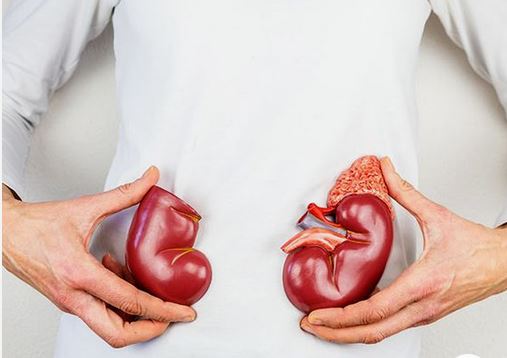How To Reduce Creatinine
As the number of patients suffering from kidney disease is increasing, reducing creatinine is a great concern and difficult too. Creatinine is basically a natural waste product that our muscles create. As the kidneys filter blood they remove Creatinine from our body. Creatinine can increase in the blood if a person has a kidney issue, but this could also happen from a high intake of protein, intense exercise, and the use of certain supplements & medications.
All Doctors often recommend a Serum creatinine blood test to determine how the kidneys are functioning. High levels of Creatinine in the blood or urine can suggest that the kidneys are not filtering the blood effectively. They are not performing their function well or reduced functionality indicates they are failing.
Having high levels of creatinine is not life-threatening, but it may be precursor of a serious health issue, such as chronic kidney disease. If a person has high creatinine levels due to a kidney disorder, the doctor will definitely recommend medical treatment or in allopathy, if creatinine is too high patient has advised dialysis and in extreme cases, a kidney transplant. Diet and lifestyle changes form a very important part of any disease treatment in Ayurveda.
In this article, we are sharing some tips on How to Reduce Urea & Creatinine Naturally
Diet
A person may be able to reduce and manage the creatinine level by incorporating some of the following changes to their diet.
Reducing Protein Intake
According to a 2014 Research, eating cooked red meat can increase levels of Creatinine. Red meat is basically a muscle tissue, which naturally contains creatine, which gets converted into creatinine after cooking. When a person eats this cooked meat, their body absorbs the creatinine, and their Serum Creatinine levels may rise.
Eating less red meat and fewer fish products decreases protein intake, which can reduce high creatinine levels. A person should try including more sources of plant-based/vegetable proteins, such as beans, in their diet.
Which Foods Can Boost Kidney Health?
Increasing Dietary Fiber Intake
Dietary fiber provides a range of health benefits like reducing/managing creatinine levels.
A review of research studies published in 2014 spotted that dietary fiber helped lower Serum Creatinine levels in people with chronic kidney disease or CRF.
Many plant-based foods, including fruits, vegetables, seeds, and whole grains, contain fiber. We recommend more seasonal fruits and vegetables for auto-immune kidney failure patients.
Stay Hydrated
Creatinine levels may arise when a person is dehydrated. Signs of dehydration include excessive thirst, dizziness, and weakness. Severe dehydration can put more strain on the cardiovascular and other organ systems. It can be life-threatening as well.
Drinking water or ORS is the best way to correct or prevent dehydration.
To Make Plain Water More Appealing, Try:
- adding a few leaves of mint
- adding a slice of lemon or cucumber with salt
- fizzy water
Herbal Teas And Decoction Is Another Option.
Any person who experiences ongoing dehydration should see a doctor, as it can be a sign of a kidney injury. People who exercise intensely without drinking fluids, for example, may also be at risk of damaging their kidneys.
Restricted Supplement And Medication Use
Some supplements may increase creatinine levels. Avoiding these supplements obviously help lower levels. Many athletes and bodybuilders take supplements containing creatine to build muscle strength and endurance. The muscles use creatine for energy, but if the muscles do not use it completely, the body converts it into creatinine. This can result in high creatinine levels that doctors may misinterpret as kidney disease.
Thus, it’s necessary for people with high creatinine levels should avoid any product that contains creatine.
Are Creatine Supplements A Good Idea?
Considering A Herbal Supplement
Punnarnava, Gokshura (Nephro-active Plus- is a more potent herbal supplement) & few more herbs play an important role in traditional Indian medicine as a treatment for kidney disorders. There are a lot more herbs that may prove beneficial in lowering creatinine level and maintain kidney health. In the subsequent articles, I will be explaining more about how to reduce Creatinine naturally.




